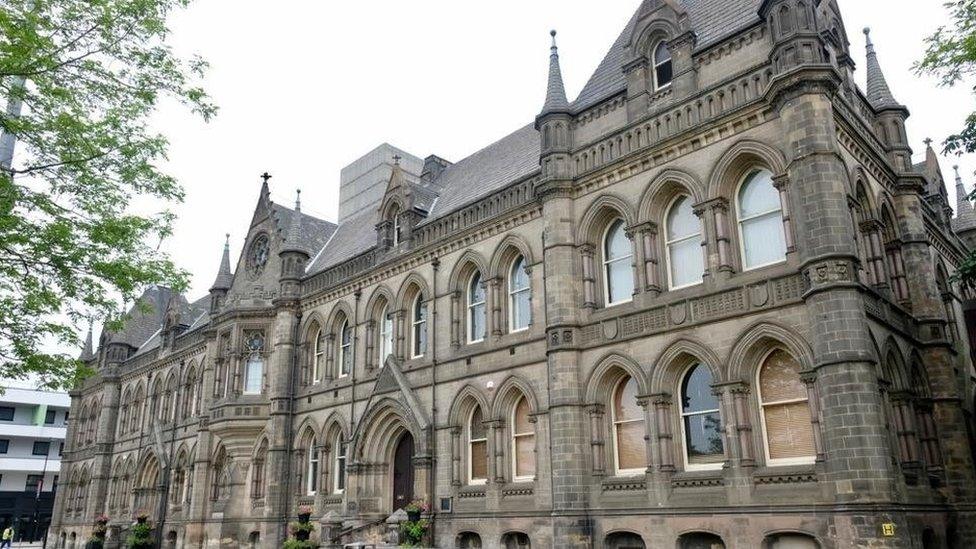More calls for Tees Valley council mergers amid financial woes
- Published
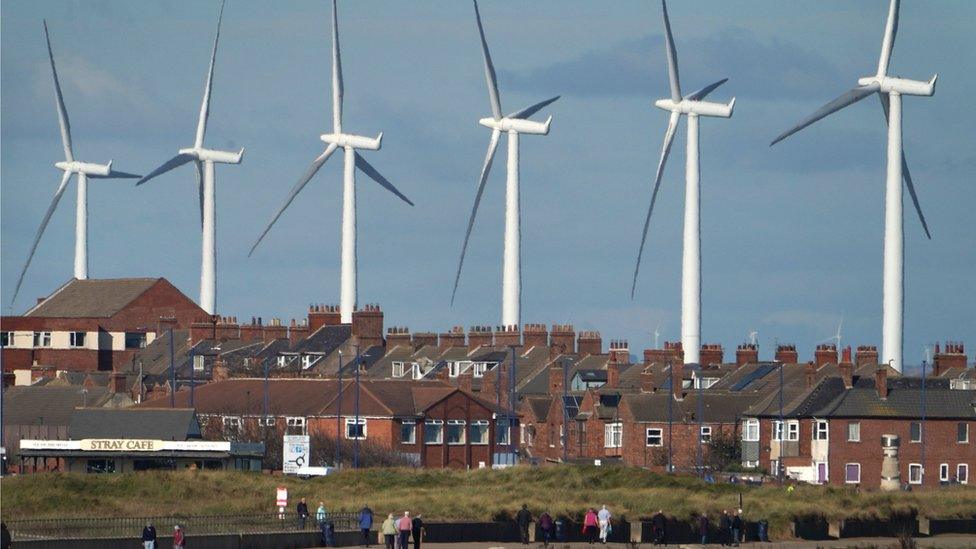
One suggestion is to create a North Tees and a South Tees council
Council tax rises, spending cuts, budget shortfalls and soaring costs. There has been miserable financial news coming out of the five Tees Valley councils in recent months.
And nowhere more so than in Middlesbrough, where the local authority has asked the government for emergency funding to stay afloat.
But there are some who believe the answer is not giving more money to councils, it is having fewer local councils to give money to.
"Middlesbrough and Redcar and Cleveland are both small authorities," said the Middlesbrough South and East Cleveland Conservative MP Sir Simon Clarke.
"It is not the way you would set up local government if you had a blank sheet of paper."
He believes merging the two would help solve the financial problems both councils face.
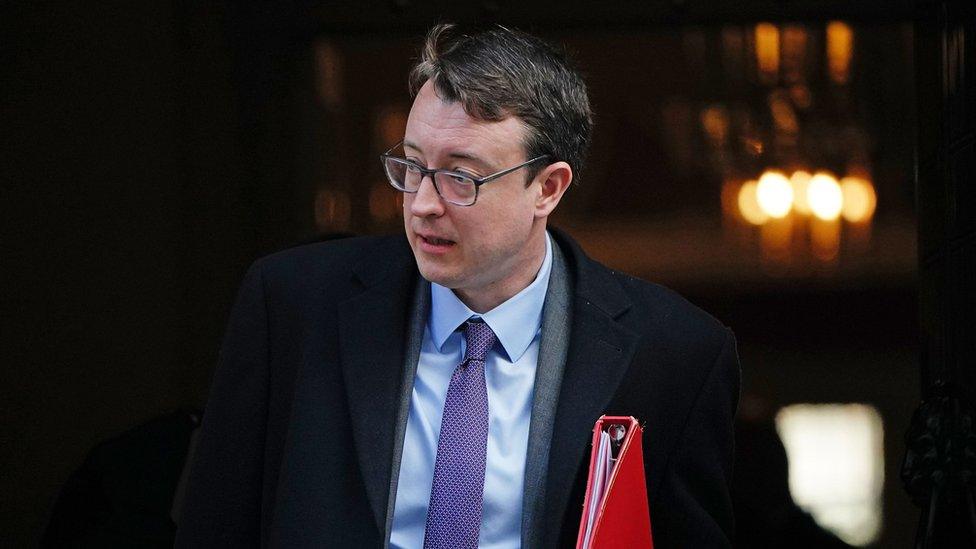
Sir Simon said merging could create one "stronger" local authority
He said: "You've got lots of people doing effectively the same job in a very, very small geography.
"At a time when we know the sector is under pressure you could realise a lot of savings by avoiding duplication."
Labour-led Redcar and Cleveland Council rejected the idea in January, saying a merger with its troubled neighbour was not "sensible".
But Sir Simon argued that a bigger local authority with a much larger population would increase financial sustainability.
"It's not without its challenges but I think it's something we should look at," he said.
No official plans
One suggestion is to simplify the system across all five Tees Valley areas by creating a North Tees and a South Tees council.
Hartlepool and Darlington would join forces in the north. Middlesbrough and Redcar and Cleveland would come together in the south.
Stockton would be split along the banks of the River Tees, meaning areas like Eaglescliffe, Billingham and Stockton town would go north, while Yarm, Thornaby and Ingleby Barwick would go south.
There are no official plans to make these changes. But Sir Simon Clarke says it has been talked about in government.
When these ideas have been floated in the past the response from council leaders has not been encouraging.
Brenda Harrison, the Labour group leader in Hartlepool, fears the town's needs would not be met if it was subsumed into a bigger local authority.

Councillor Brenda Harrison said the issues come down to funding from the government
Ms Harrison said: "We are a town that people are very proud to be from. I think the identity is a real worry, that we would be merged into the conglomerate."
She said the idea of mergers was only being discussed because the government was not funding local authorities properly.
Ms Harrison said: "We are at this stage because of a bigger problem, the cuts that have happened over the last 14 years with the government.
"In 2010 we received £71m from government. In 2023 we received £23m.
"We are thinking about this merger because councils are on their knees financially."
Councils vs local people
There are also issues of identity. Would people in Darlington want to share a council with Hartlepool? Do people in Loftus or Brotton feel they would get a good deal from a local authority based in Middlesbrough?
Probably not, said Chris Lloyd from the Darlington-based Northern Echo newspaper.
He said the relationship between the public and politicians was already fractious in the town, and that would get worse if people were dealing with a council based elsewhere.
"It already feels, in planning terms, that it is Darlington Council verses the local people, when we are discussing developments of housing complexes," he said.
He added: "If a bigger authority were to be created, where Stockton, a rival town like that, had some say in planning matters in Darlington, there would be a kind of mutiny in the tree-lined avenues of the West End.
"I think it's really important that these decisions are made as close to people as possible."
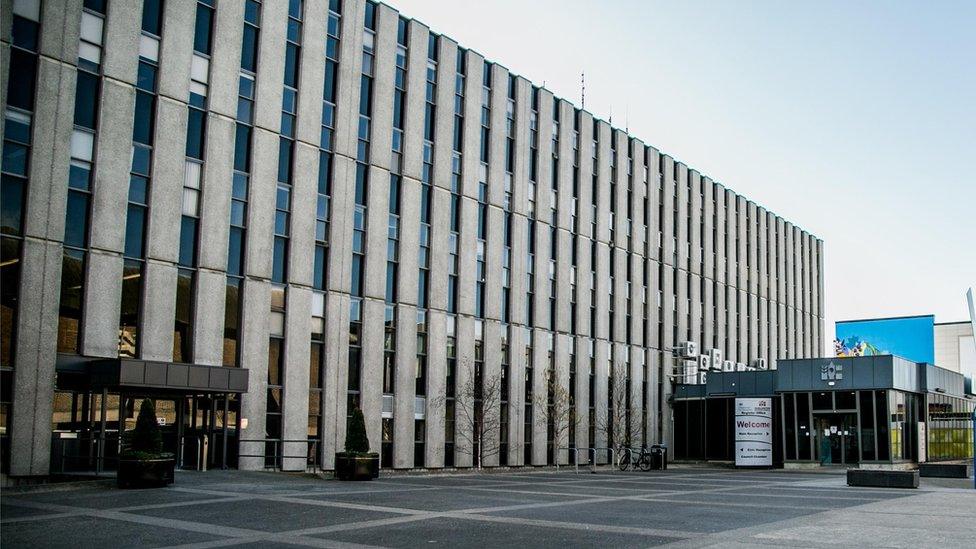
Darlington Council is one of five in the Tees Valley
You don't have to look too far see how smaller councils have been taken in by bigger organisations.
District councils were abolished in County Durham in 2009.
North Yorkshire's districts were abolished last year, becoming part of a new local authority covering a population of more than 600,000 people.
Complicated task
Potential job losses are another complicating factor. Fewer councils would likely mean fewer staff.
Local authorities provide lots of well-paid, "white collar" jobs, something the Tees Valley does not have in abundance outside the public sector.
And those workers are usually based near town centres, providing income for shops, cafés and restaurants.
Ms Harrison said it is an issue that has to be taken seriously.
"Hartlepool Council is the biggest employer in the town," she said.
She added: "We have plans in process enabling people to come into those jobs and have apprenticeships here.
"So yes, that is another big worry."
Sir Simon, though, said the key is to create good jobs, without relying on taxpayers.
The abolition of district councils shows that local government is moving towards a place where there are fewer councils, not more.
But merging five unitary authorities into new, bigger organisations would be a complicated task.
There is no clear plan in place but the idea of cutting the number of Tees Valley Councils is edging its way on to the political agenda.

Follow BBC Tees on Facebook, external, X (formerly Twitter), , externaland Instagram, external. Send your story ideas to northeastandcumbria@bbc.co.uk, external.
- Published28 November 2023

- Published14 September 2023
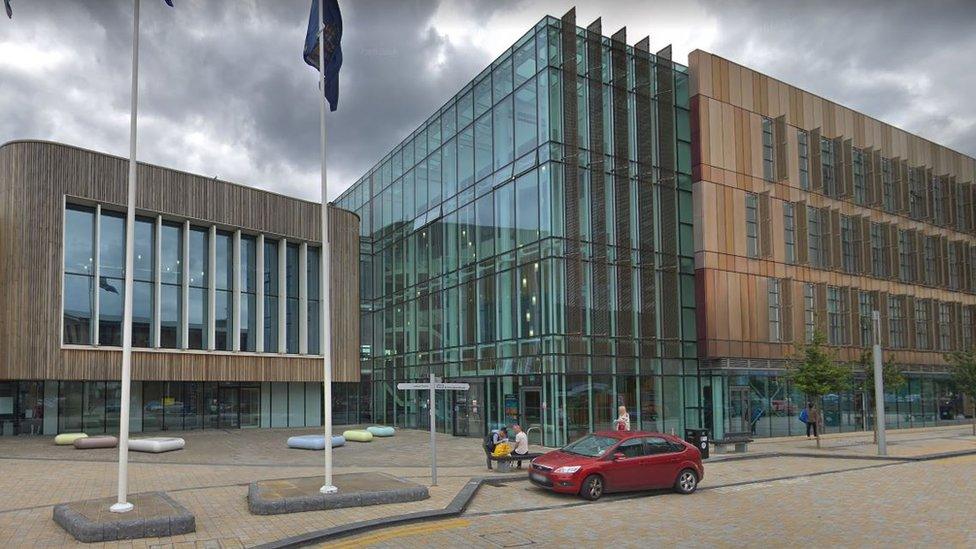
- Published16 August 2023
